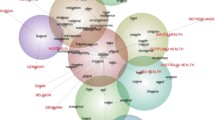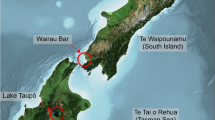Abstract
Relocation from vulnerability hotspots to alternative safer locations is being increasingly proposed as one of the climate change response options. Yet, its consistent adoption in the rhetoric and more importantly policy remains elusive. This paper evaluates the extent to which different actors in policy and planning arenas consider relocation as a viable response to climate change as inferred from the extent to which relocation rhetoric permeates documents designed to inform and guide adaptation. The study examines 56 local, state, and national climate change adaptation texts to determine how many are considering and/or referring to relocation, what language they employ, and in which context. The content analysis was performed to measure the occurrence and frequency of keywords relocation, retreat, migration, and abandonment, as well as their frequency. The results show a significant inconsistency and lack of coherence in the use of relocation rhetoric among examined contemporary adaptation documents that are impeding a more comprehensive consideration and the development of relocation policy and planning. To address this barrier, the author proposes a unifying definition of the term relocation within the context of climate change.
Similar content being viewed by others
References
Adger WN, Agrawala S, Mirza MMQ, Conde C, O’Brien K, Pulhin J, Pulwarty R, Smit B, Takahashi K (2007) Assessment of adaptation practices, options, constraints and capacity. In: Parry ML, Canziani OF, Palutikof JP, van der Linden P, Hanson CE (eds) Climate Change 2007: impacts, adaptation and vulnerability. Contribution of Working Group II to the Fourth Assessment Report of the Intergovernmental Panel on Climate Change. Cambridge University Press, Cambridge, pp 717–743
Alaska Climate Change Sub-Cabinet (2010) Alaska’s climate change strategy: addressing impacts in Alaska. Final draft report by the adaptation advisory group
Barnett J, Webber M (2009) Accommodating migration to promote adaptation to climate change. A policy brief prepared for the Secretariat of the Swedish Commission on Climate Change and Development and the World Bank Report 2010
Biermann F, Boas I (2010) Preparing for a warmer world: towards a global governance system to protect climate refugees. Glob Environ Polit 10(1):60–88
Black R (2001) Environmental refugees: myth or reality? UNHCR, Working Paper No. 34: 1–20
Blanco H, Alberti M, Olshansky R, Chang S, Wheeler MS, Randolph J, London BJ, Hollander JB, Pallagst KM, Schwarz W, Popper FJ, Parnell S, Pieterse E, Watson V (2009) Shaken, shrinking, hot, impoverished and informal: emerging research agendas in planning. Prog Plan 72:95–250
Brown O (2007) Climate change and forced migration: observations, projections and implications. Human Development Report, UNDP
Campbell JR, Goldsmith M, Kosh K (2005) Community relocation as an option for adaptation to the effects of climate change and climate variability in Pacific Island Countries. Asia-Pacific Network for Global Change Research
Cernea MM (2000) Risks, safeguards, and reconstruction: a model for population displacement and resettlement. In: Cernea MM, McDowell C (eds) Risks and Reconstruction: Experiences of Resettlers and Refugees. The World Bank: Washington, DC
Cronin V, Guthrie P (2011) Community-led resettlement: from a flood-affected slum to a new society in Pune, India. Environ Hazards 10(3–4):310–326
Docherty B, Giannini T (2009) Confronting a rising tide: a proposal for a convention on climate change refugees. Harv Environ Law Rev 33:349–403
Dun O, Gemenne F, Stojanov R (2007) Environmentally displaced persons: working definitions for the EACH-FOR Project. Paper in response to Conference on Migration and Development in Istrava, Czech Republic, September 2007
Fagan BM (2004) The long summer: how climate changed civilization. Basic Books, New York
Gemenne F (2010) Migration, a possible adaptation strategy? Inst Sust Dev Int Relat 3:1–4
Kibreab G (1997) Environmental causes and impact of refugee movements: a critique of the current debate. Disasters 21(1):20–38
Kniveton D, Schmidt-Verkerk K, Smith C, Black R (2008) Climate change and migration: improving methodologies to estimate flows. International Organization for Migration, Geneva
Krippendorff K (2004) Content analysis: an introduction to its methodology. Sage, Newbury Park
Laczko F, Aghazarm C (2009) Migration, environment and climate change: assessing the evidence. International Organization for Migration, Geneva
Leighton M, Shen X, Warner K (eds) (2011) Climate change and migration: rethinking policies for adaptation and disaster risk reduction. Publication series of United Nations University No.15, Bonn, Germany
Mayer B (2011) Migration as a sustainable adaptation strategy. Presented at the second conference of the Initiative on Climate Adaptation Research and Understanding through the Social Sciences: Climate Vulnerability and Adaptation: Marginal Peoples and Environments, May 5-8, 2011, Ann Arbor, MI
McLeman R, Smit B (2006) Migration as an adaptation to climate change. Clim Chang 76:31–53
Morra-Imas LG, Rist RC (2009) The road to results: designing and conducting effective development evaluations. World Bank Publications, Washington
Muggah R (2008) Relocation failures in Sri Lanka: a short history of internal displacement and resettlement. Zed Books, London
OECD (2009) Introduction to the local level. Integrating climate change adaptation into development co-operation: policy guidance
Oliver-Smith A (ed) (2009) Development & dispossession: the crisis of forced displacement and resettlement. School for Advanced Research Press, Santa Fe
Orlove B (2005) Human adaptation to climate change: a review of three historical cases and some general perspectives. Environ Sci Pol 8:589–600
Patel SS (2006) Climate science: a sinking feeling. Nature 440(7085):734–736
Shamsuddoha M, Chowdhury RK (2010) Climate change migrants. Tiempo Bull Clim Dev 74:1–28
Tacoli C (2009) Crisis or adaptation? Migration and climate change in a context of high mobility. Environ Urban 21(2):513–525
Warnecke A, Tänzler D, Vollmer R (2010) Climate change, migration and conflict: receiving communities under pressure? Background papers of the study team on climate change and migration, German Marshall Fund, pp 1–10
Warner K (2009) Migration: Climate adaptation or failure to adapt? Findings from a global comparative field study. IOP Conference Series: Earth Environ Sci 6(56)
Warner K, Hamza M, Oliver-Smith A, Renaud F, Julca A (2009) Climate change, environmental degradation and migration. Nat Hazards 55(3):689–715
Wilkinson D, Birmingham P (2003) Using research instruments: a guide for researchers. Psychology Press, New York
Acknowledgments
The author would like to thank to Chongrui Yu and Yiming Peng from the Virginia Tech’s LISA Center for the statistical consultation.
Author information
Authors and Affiliations
Corresponding author
Rights and permissions
About this article
Cite this article
Bukvic, A. Identifying gaps and inconsistencies in the use of relocation rhetoric: a prerequisite for sound relocation policy and planning. Mitig Adapt Strateg Glob Change 20, 1203–1209 (2015). https://doi.org/10.1007/s11027-013-9532-5
Received:
Accepted:
Published:
Issue Date:
DOI: https://doi.org/10.1007/s11027-013-9532-5




